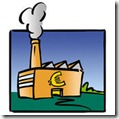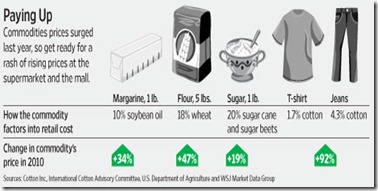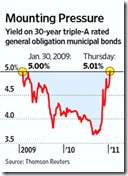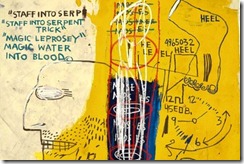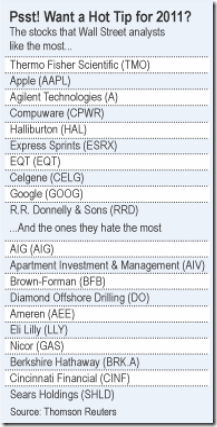-
 Civil protest in Egypt was conceived, organized and maintained by and through social networks such as Facebook and Twitter. However late Thursday last the government was able to turn off the internet to the entire country with a series of ‘phone calls’. The government was able to do this because there are only a few large providers and they sell service to others. The one address that did not shut down was for the Egyptian stock market.
Civil protest in Egypt was conceived, organized and maintained by and through social networks such as Facebook and Twitter. However late Thursday last the government was able to turn off the internet to the entire country with a series of ‘phone calls’. The government was able to do this because there are only a few large providers and they sell service to others. The one address that did not shut down was for the Egyptian stock market. - Expect a volatile week. Gold sold off Monday morning but expected to run higher as the Egyptian crisis continues. The Chinese Lunar New Year holiday falls on February 3rd and many Asian markets will be closed from the middle of this week in observance.
- The U.S. owns a Trillion dollars of Treasuries.
- Historically the 3rd year of the presidential cycle is regarded as bullish for the stock market.

- Barrons.com reports that Jeremy Grantham is less than bullish with the cautionary, ‘be aware that you are living on borrowed time as a bull; on our data the market is worth 910 on the S&P’s 500 (it was 1280 on Friday)… and most risky components are even more overpriced.’
- An analysis from HSBC bank - five nations will experience the fastest growth in their working age populations between 2010 and 2050. Sixth on the list is India on track to exceed China’s population by 2028. Rich, older nations will grow more slowly than emerging ones. It is expected that China will be the emerging power with 24% of world GDP by 2030 or twice that of the United States.
- ‘Telling people you cannot beat the market is like telling a six-year old that Santa Claus doesn’t exist. The six year old doesn’t want to believe it. Neither do people on Wall Street. –Burton Malkiel, Princeton University professor of economics.
 Apple passed PetroChina to become the second biggest company in the world by market cap.
Apple passed PetroChina to become the second biggest company in the world by market cap. - James B. Stewart, (Not the but the lesser known)writing for Common Sense in the WSJ, argues that Facebook may indeed be a bargain even at $50 billion. He ponders that it may be that rare entity, a natural monopoly. He defines that as being a business model or technology impossible to replicate, meaning it can extract high profit margins for the foreseeable future.
 Bloomberg’s BusinessWeek reported that in the past 5 years stocks of 6 Western oil company giants have logged an average annual return of just 5%. Small oil companies have earned an average of 8.3%. The energy giants are putting their low-growth assets on the selling block in order to use the money for activities that bring higher risks along with better returns.
Bloomberg’s BusinessWeek reported that in the past 5 years stocks of 6 Western oil company giants have logged an average annual return of just 5%. Small oil companies have earned an average of 8.3%. The energy giants are putting their low-growth assets on the selling block in order to use the money for activities that bring higher risks along with better returns. - Markets rediscover fundamentals. This a break with what has been a fear for investors to lock in long-term investments. In the past the on-off trade was because of fear and not long-term value. Lately the market is getting back to basics, according to Mark Gongloff in his column, Abreast of Markets in the WSJ. Good for us- bad for traders.
- Triple digits up on Monday. Whispers that China no longer looks to the U.S. for investment guidance as they once did. The global economic flushing cured them of any thoughts of our expertise.
 A two-speed economic recovery will continue this year according to the IMF. The International Monetary Fund said that the U.S. will grow 3% while China and India surge. China is expected to grow 9.6% and India 8.4%. The IMF also warned about weak balance sheets and high leverage at certain countries.
A two-speed economic recovery will continue this year according to the IMF. The International Monetary Fund said that the U.S. will grow 3% while China and India surge. China is expected to grow 9.6% and India 8.4%. The IMF also warned about weak balance sheets and high leverage at certain countries. - Hot Research at Barrons.com points out that General Motors is making money at building 12 million cars while the old GM could not make money at 16 million units. The stock, according to Craig-Hallum Capital Group is a buy because of its exposure to emerging markets and current market price.
 Tuesday markets backed off 12000 on the Dow closing off their lows. Gold off as were commodities. Merrill settled SEC trading charges for allegedly (I love it when someone pay millions and you have to report ‘allegedly’) ‘back-running trades after customer’s orders. Merrill’s trading desk booked trades for the firm after learning what institutional customers were allegedly buying. Back-running is not front running where the broker places the order for himself before he buys for the customer. It is the reverse but just as deadly and taking advantage of confidential information.
Tuesday markets backed off 12000 on the Dow closing off their lows. Gold off as were commodities. Merrill settled SEC trading charges for allegedly (I love it when someone pay millions and you have to report ‘allegedly’) ‘back-running trades after customer’s orders. Merrill’s trading desk booked trades for the firm after learning what institutional customers were allegedly buying. Back-running is not front running where the broker places the order for himself before he buys for the customer. It is the reverse but just as deadly and taking advantage of confidential information.  Dirtiest hotel in the United States according to TripAdvisor.com is Grand Resort Hotel & Convention Center in Pigeon Forge, Tennessee. (I don’t know a soul that ever vacationed in Pigeon Forge, you too?) The Hotel Namaskar in New Delhi wins the yuckiest award for India and the Cromwell Crown in London may not win top honors for being the most foul but guests report, ‘When you walked on the carpet dust came out.’ silly me worried about bedbugs….
Dirtiest hotel in the United States according to TripAdvisor.com is Grand Resort Hotel & Convention Center in Pigeon Forge, Tennessee. (I don’t know a soul that ever vacationed in Pigeon Forge, you too?) The Hotel Namaskar in New Delhi wins the yuckiest award for India and the Cromwell Crown in London may not win top honors for being the most foul but guests report, ‘When you walked on the carpet dust came out.’ silly me worried about bedbugs…. - Thursday last S&P cut the rating on Japan’s long-term sovereign-credit rating to AA- from AA. The yen dropped on the news. Who’s next?
- The Federal Open Market Committee aka FOMC agreed to keep buying bonds, as much as $600 billion in long term Treasuries until the labor market strengthens. For bond investors good news as this will provide some stability expected at least to June.
 A day after Obama’s speech the CBO announced (Congressional Budget Office) the deficit would be UP $60 billion more than the White House projected last year. It’s time, ladies and gents, to STOP the insane spending and start cutting. Until the government gets it America’s businesses will not start hiring and expanding.
A day after Obama’s speech the CBO announced (Congressional Budget Office) the deficit would be UP $60 billion more than the White House projected last year. It’s time, ladies and gents, to STOP the insane spending and start cutting. Until the government gets it America’s businesses will not start hiring and expanding. - Thursday last Amazon missed numbers but Microsoft topped estimates with $6.63 billion quarter! Gold off 1% for the day. Oil fell under $90. Durable goods fell 2.5% plus unemployment (due to weather and temp Holiday help) rose did not help markets. Unrest overseas certainly has the Asian and European markets spooked.
- Gold off 6% in 2011. A small hedge fund attempted to corner the gold market and held $850 million gold contracts – the cost to quit the trade was over $7 million! Ouch!
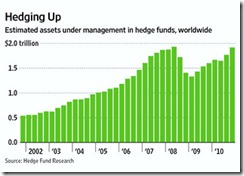 Alive and well are hedge funds! John Paulson, manager who made billions betting on the collapse of the mortgage market, earned another $5 billion in 2010. It was done with steady, but not spectacular, investments and returns. While assets at hedge funds have increased by 20%, according to Gregory Zuckerman in the WSJ, investment returns average just 10.49% in 2o10.
Alive and well are hedge funds! John Paulson, manager who made billions betting on the collapse of the mortgage market, earned another $5 billion in 2010. It was done with steady, but not spectacular, investments and returns. While assets at hedge funds have increased by 20%, according to Gregory Zuckerman in the WSJ, investment returns average just 10.49% in 2o10. - I got one of those cold calls last week from a huckster promoting HIS oil well. He was still blabbing as I clicked off.
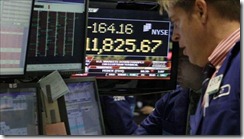 Markets hit with Egyptian worries Friday as the Mid-East exploded. Crude and gold rose as traders fretted over what they did not know. The 10-year Treasury got better looking as the notes rose and yields fell to 3.333%. Amazon and Ford lead the losers. According to Saturday’s WSJ the news out of Egypt may have offered an excuse for a pause in financial markets that some skeptics say have come too far, too fast in recent months.
Markets hit with Egyptian worries Friday as the Mid-East exploded. Crude and gold rose as traders fretted over what they did not know. The 10-year Treasury got better looking as the notes rose and yields fell to 3.333%. Amazon and Ford lead the losers. According to Saturday’s WSJ the news out of Egypt may have offered an excuse for a pause in financial markets that some skeptics say have come too far, too fast in recent months. - Expecting state bond defaults has unintended consequences as states are under pressure to refinance their debt to mom and pop investors. Both institutional and retail investors are exercising more caution in 2011 before buying municipals. To combat this fear Illinois, New York, New Jersey, Maryland, Tennessee and California are marketing and allowing individual investors to buy bonds ahead of the institutions. States are creating web site to promote the sale of their debt and also working with more brokerage firms in an effort to reach a broader group of investors.
 Liam Denning writing for Heard on The Street reports on the bump in the road Ford took Friday as 4th quarter earnings came under consensus forecast. It was Ford’s first miss in 2 years, according to Morgan Stanley. The biggest drag was a $1 billion hit because of costs compared to the prior quarter. The making of cars is an expensive business. Ford did raise guidance for the balance of 2011. The stock is trading at a modest multiple of 8.5 times earnings.
Liam Denning writing for Heard on The Street reports on the bump in the road Ford took Friday as 4th quarter earnings came under consensus forecast. It was Ford’s first miss in 2 years, according to Morgan Stanley. The biggest drag was a $1 billion hit because of costs compared to the prior quarter. The making of cars is an expensive business. Ford did raise guidance for the balance of 2011. The stock is trading at a modest multiple of 8.5 times earnings.
Questions call Paul @ 877 783 7080 or write him at pstanley@westminsterfinancial.com. Share this blog with someone who cares about their money.





